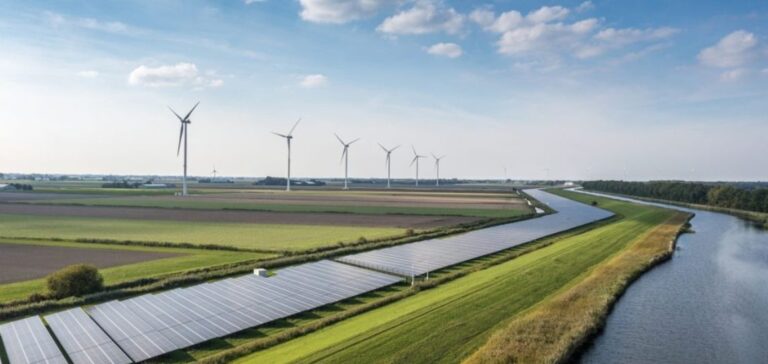The transition to zero carbon has become a crucial issue for modern economies, not only for environmental reasons but also for its economic potential. According to Oxera’s new study entitled “Growth Zero: Reframing net zero as a driver of growth”, the economies of the European Union (EU) and the United Kingdom (UK) could experience significant growth by adopting rapid decarbonization policies. The study identifies four main levers for achieving this objective: regulation, private-sector innovation, carbon pricing and tax policy. In addition, there are a growing number of bills promoting energy transition, such as the Net-Zero Industry Act adopted by the EU in May 2024.
Economic impact in Europe and the UK
Applying these levers could generate additional annual growth of 1.4% for the EU, representing a potential gain of 6.1 trillion euros in GDP and the creation of 1.4 million jobs per year. In the UK, growth could reach 1.3% per year, with an additional GDP of £765 billion and up to 309,000 jobs per year. These figures highlight the economic potential of the zero-carbon transition, which can transform the economic landscape while meeting climate requirements.
Private Sector Regulation and Innovation
Strict regulations are an essential lever for accelerating the transition to zero carbon. These measures could include tough penalties for high-emission sectors and accelerated phase-out dates for polluting technologies. At the same time, technological innovation in the private sector is crucial. The large-scale deployment of new green technologies can not only reduce emissions, but also create new economic opportunities and jobs.
Carbon Pricing and Tax Policy
Carbon pricing is another powerful lever. A gradual increase in carbon prices encourages industries to adopt more sustainable practices. This measure can also generate additional revenues for governments, which can be reinvested in green initiatives. In addition, a favorable fiscal policy, including subsidies for low-emission technologies and taxes on polluting industries, can accelerate the transition to zero carbon.
Focus on Germany
Oxera’s study also looks at the potential impact of these measures in Germany, the EU’s largest economy. Despite German voters’ concerns about the costs associated with the transition, a rapid transition could unlock up to €1.6 trillion in GDP and support between 191,000 and 238,000 jobs annually. This shows that even the most robust economies can benefit from ambitious decarbonization policies.
A lever for economic growth
The results of the study underline that the transition to zero carbon represents not only a cost but also a major economic opportunity. By adopting rigorous decarbonization policies and fostering innovation, European economies can not only achieve their climate objectives, but also stimulate sustainable economic growth. This transition can be a lever for greater economic prosperity, strengthening Europe’s economic resilience in the face of future challenges.
The combination of regulation, private sector innovation, carbon pricing and fiscal policy offers a clear roadmap for maximizing economic benefits while achieving zero-carbon goals. Political decision-makers and business leaders need to work closely together to implement these strategies in an effective and integrated way.
The transition to zero carbon represents an unprecedented opportunity for European economies. By implementing robust decarbonization policies and encouraging technological innovation, Europe can not only reduce its carbon emissions but also stimulate significant, sustainable economic growth. The figures presented in the Oxera study clearly show that this transition can be a powerful driver of economic development, creating millions of jobs and generating trillions of euros in additional GDP. It’s time for decision-makers and businesses to seize this opportunity and turn the climate challenge into a lever for economic growth.






















